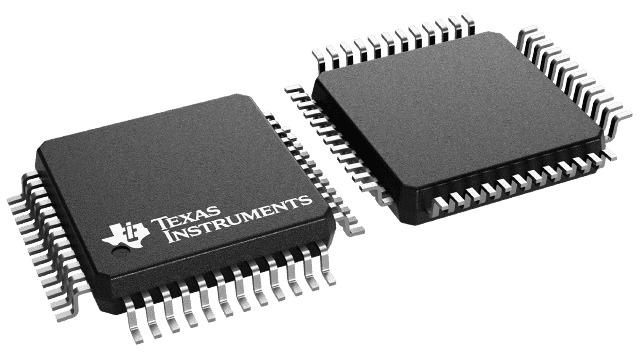| Datarate (Mbps) | 10/100 |
| Interface type | MII, RMII |
| Number of ports | Single |
| Rating | Catalog |
| Features | IEEE 1588 PTP, FX support, Cable diagnostics, JTAG1149.1 |
| Supply voltage (V) | 3.3 |
| IO supply (Typ) (V) | 2.5, 3.3 |
| Operating temperature range (C) | -40 to 85 |
- IEEE 1588 V1 and V2 Supported
- UDP/IPv4, UDP/IPv6, and Layer2 Ethernet
Packets Supported - IEEE 1588 Clock Synchronization
- Timestamp Resolution of 8 ns
- Allows Sub 10-ns Synchronization to Master
Reference - 12 IEEE 1588 GPIOs for Trigger or Capture
- Deterministic, Low Transmit and Receive Latency
- Selectable Frequency Synchronized Clock Output
- Dynamic Link Quality Monitoring
- TDR Based Cable Diagnostic and Cable Length
Detection - 10/100 Mb/s Packet BIST (Built-in Self Test)
- Error-Free Operation up to 150 Meters CAT5
Cable - ESD Protection – 8 kV Human Body Model
- 2.5-V and 3.3-V I/Os and MAC Interface
- Auto-MDIX for 10/100 Mbps
- RMII Rev. 1.2 and MII MAC Interface
- 25-MHz MDC and MDIO Serial Management Interface
- IEEE 802.3 100BASE-FX Fiber Interface
- IEEE 1149.1 JTAG
- Programmable LED Support for Link, 10/100 Mb/s
Mode, Duplex, Activity, and Collision Detect - Optional 100BASE-TX Fast Link-loss Detection
- Industrial Temperature Range
- 48-pin LQFP Package (7 mm × 7 mm)
The DP83640 Precision PHYTER? device delivers the highest level of precision clock synchronization for real time industrial connectivity based on the IEEE 1588 standard. The DP83640 has deterministic, low latency and allows choice of microcontroller with no hardware customization required. The integrated 1588 functionality allows system designers the flexibility and precision of a close to the wire timestamp. The three key 1588 features supported by the device are:
- Packet time stamps for clock synchronization
- Integrated IEEE 1588 synchronized clock generation
- Synchronized event triggering and time stamping through GPIO
DP83640 offers innovative diagnostic features unique to Texas Instruments, including dynamic monitoring of link quality during standard operation for fault prediction. These advanced features allow the system designer to implement a fault prediction mechanism to detect and warn of deteriorating and changing link conditions. This single port fast Ethernet transceiver can support both copper and fiber media.








